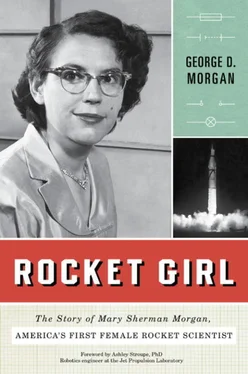At the point where the road narrowed, the pavement made a wide bend to the left, then continued straight as it ribboned its way northward toward Germany’s border with Denmark, a three-hour drive away. It was at this moment, as Strugholdt was entering the grassy field, that he encountered the students, approaching on foot and searching the tall grass for their errant missile. At the sight of their rocket, the boys rejoiced.
“Captain Strugholdt—you found our rocket!”
“Oh, yes,” he replied. “I found it.”
The captain had never bothered to investigate this group closely, a decision he now regretted. The local residents never complained and, in fact, were often seen joining the experimenters tourist-like during their monthly launches. Strugholdt knew none of the names of these boys, who they were, what universities they attended, or who their families were. Today, however, someone had to be held responsible.
“Which of you is the leader?” the captain demanded.
The boys exchanged puzzled looks. None of them had ever been technically “in charge”—they were a headless ragtag, a rudderless ship, a group led by the nose of enthusiasm rather than some outstanding personality. Today, that would change.
“I said, who is in charge!?”
One by one, the youthful rocketeers turned to look at the muscular, attractive, blue-eyed blond boy walking out of a tall strand of grass. The boy brushed dew and thistles from his pants as he approached. He was dressed considerably better than the others, a sure indication of his family’s wealth. The boys pointed to him.
“He is.”
“What is your name?” the captain demanded.
“Wernher,” the boy said. “Wernher von Braun.”
“You and your friends are not welcome here anymore,” said the captain. “Go home. Tell your parents they owe me two thousand marks for the damage you caused to the police station.”
With that, the captain turned and marched back toward the city, the rocket still firmly in his grasp. As the boys quietly watched him go, smiles began to spread across their faces. If, in fact, their rocket had managed to reach the police station, then that could mean only one thing: their many hours of work and research and testing were paying off—their rockets were becoming more powerful and sophisticated, reaching greater heights and longer ranges. They congratulated each other on their success, went their separate ways, and never told their parents.
4.
THE ABC’S OF MILKING COWS
Mary gently pushed open the door to their home. Tightly holding her first homework assignment with both hands, she passed the threshold and entered the dim house. There was a clunk , and she looked down to see her foot had knocked against an empty wine bottle. Mary looked around but saw no one. She stepped forward.
“Ya still have to do your chores.”
Her father’s voice startled her. Now she could see him, his form hidden in the moody shadows of the late afternoon. He was sitting in a chair, staring into space.
“Chores never end on a farm.”
“But I have homework.”
“Don’t matter. Ya wanna go to school? Fine. Ya still have to do a full day of chores—just like everybody else.”
“But I won’t have time for my homework.”
“Just like everybody else.”
The barn door was missing a hinge and Mary had to lift it slightly in order to close it. The cow’s name was Irma, and as Mary led her slowly toward the milking post, she was careful not to soil her shoes. They were scruffy and well used, but they were hers. Hand-me-downs from a cousin, who had inherited them from some other cousin, they were perfect. It was Aunt Aida who had personally instructed her parents to get Mary some good walking shoes, and they had agreed. In all the world, Mary owned four personal possessions: two dresses, a corncob doll from Aunt Aida, and now the shoes. Were she to be buried with them, archeologists a thousand years hence would make note of how poor the family must have been.
Mary heard the sound of the truck’s engine starting and turned to see Vernon and Michael climb over the gates and onto the flatbed. As her father circled the truck around the yard once, Vernon whistled loudly, and their three dogs, each of them named Rover, jumped into the moving truck. As the truck drove away, Mary’s brothers made ugly faces at her. She turned away, grabbing the metal bucket with one hand, the rickety egg crate with the other.
“Hi, Irma. Ya got some milk for me tonight?”
The leather belt was already in the crate. Mary removed it, then wrapped the belt around Irma’s hind legs to restrain her. She pulled the belt tight, then set the buckle. Irma huffed a breath of air through her downy, white nostrils, giving a subtle grunt as Mary took her seat on the crate. The wobbly wooden box settled several inches into the soil—a wet, slurry of mud, manure, and muck, all mixed with the downstream offal of the butcher block.
“Actually, I should say you . Mrs. Bowman—that’s my teacher—says I shouldn’t say ya because ya is not a word. You should say you , she says. Never say ya —only say you . Only the ignorant use words that don’t exist. That’s what she says. So let me try that again. You got some milk for me tonight?”
Mary placed the bucket beneath the cow, then ran her hand tenderly along the soft skin of the udder, gently massaging and kneading the bulging sac. This was a technique her father had taught her. He called it “letting the milk down.”
“I’m starting to learn the alphabet. The other kids know it already, and some of ’em make fun of me. At least I know English. Most of the other kids, their families are from Denmark and Norway. None of them knew English when they got here, but now they talk pretty good. Mrs. Bowman says they all seem to pick it up real quick. Danish in September, English in December; that’s what she calls it. Anyway, the alphabet. Would you like to learn it, too? I’ll teach you.”
Mary placed all five fingers of each hand around the front teats and began to draw Irma’s milk into the metal pail. She saw movement off to her left and turned to find her oldest brother Clarence walking toward the farmhouse. The high school was an easy two-mile walk down Highway 2—no river crossings required.
“First, there’s the letter A . It has two sticks that form a point—like the roof of a house—with a little stick that connects them in the middle. A is what’s known as a vowel. Got that?”
Irma had no reply.
“Then comes the stick with the two half circles. That’s a B . Next we have a circle with a piece cut out of it—that’s a C . A - B - C . Mrs. Bowman says the alphabet is sometimes called the ABC’s. Whatta ya think about that?”
Irma lowered her head and searched for a fresh stalk of grass, but there was none.
“Mrs. Bowman taught me how to make all the sounds of the alphabet. Did you know that C is pronounced just like the beginning of the word cow ? It’s the first letter in the word cat , which means it’s probably the first letter in the word cow , too. That’s what I think.”
Irma let out a low moan, turning her head to get a better view of her loquacious milker.
“Next comes D —a stick with a half circle. Then E —a sideways table with three legs. E is also a vowel. After E comes F —which is like E but with the bottom leg missing. G —which I found out is the first letter in God —is like a C , but different. The letter H is like A , but the legs are straight instead of pointy. I is just a line—that’s easy to remember. J is kinda like a fishhook.”
Читать дальше












